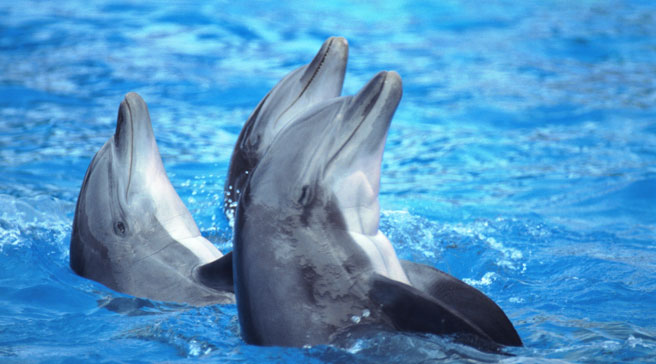The wordless love of animals
The special bond between humans and animals can help to make us happier and healthier, says David Servan-Schreiber

We are at a dolpin therapy centre in Curaçao in the Dutch Antilles. A sign on the door warns that we are entering a ritual space: ‘To protect the families’ privacy, this pool is out of bounds to the public’. A small bridge crosses over a canal and behind it is a large, open pool leading to the sea.
At some distance apart, four ‘therapist’ dolphins are playing with four children, accompanied by an assistant. These children are autistic, neurologically damaged and severely disabled. Yet what you notice is not their deformities, but rather the intense joy they radiate. None of them can talk, but their cries of laughter, amazement and pride are clearly audible.
The dolphins all seem to be at least five times the size of the children, and their sudden spurts of speed and unexpected leaps could be terrifying. Instead, all you feel is the grace of this contact.
Seven-year-old Christen is physically and mentally handicapped. He slaps the water with the flat of his hand to make Mateo, an adult male and a favourite with the children, come to him. His movements seem almost fluid under the charm of Mateo’s magic. He holds up two fingers and waves his hand at the dolphin. Understanding what he is asking, the dolphin pulls itself upright and sings, ‘Hi, hi, hi, hi’. Christen chuckles gleefully. Looking at the animal, he shakes an invisible hand. Mateo holds himself higher and flaps his flippers to return the gesture. Christen opens his arms wide. Mateo dips back into the water and surfaces with his chest between the child’s arms. Christen hugs him close and looks over to his parents and sister who are watching by the pool. I see them wipe tears from their eyes.
In the 1960s, the psychiatrist and philosopher Erich Fromm defined the biophilia hypothesis – developed in detail later by the noted biologist Edward O Wilson – that the source of our wellbeing is rooted in our relationship with the natural environment. Since then, others have suggested that the evolution of the human mind has been conditioned by our relationship with animals. This is borne out by research showing that we are happier and healthier if we are in regular contact with animals that show us affection. Another study showed that dolphins can relieve minor depression faster than a course of antidepressants. Autistic or disabled children can’t be ‘cured’.
However, tests following contact sessions indicate that they’re better able to concentrate, communicate more easily, interact better with their family members and, most important, that they smile and laugh more with others. These results show they’ve learned something of fundamental value, a notion of their own worth, and that despite their clumsy gestures and lack of words, of the happiness they are able to give and receive.
Photograph: John Foxx








